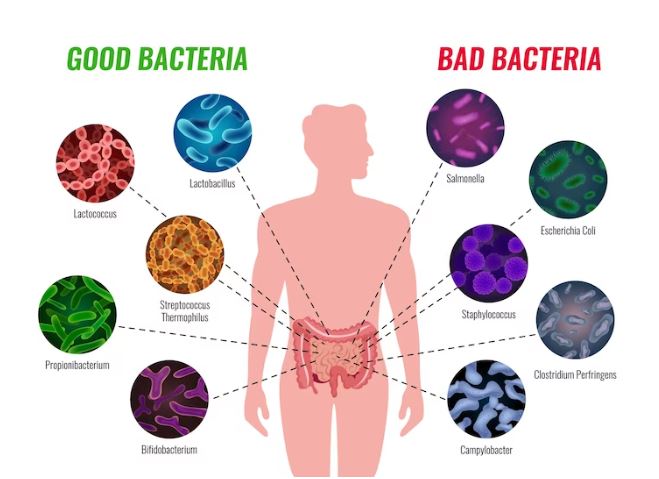Bifidobacterium: Longevity Bacteria
The gut bacteria of healthy, long-lived individuals have a high concentration of “longevity bacteria,” which refers to the Bifidobacterium species. Increasing these bacteria in the gut can promote overall health.
In recent years, maintaining a healthy gut, also known as “balancing the gut microbiome,” has been emphasized as an important aspect of overall health. In light of this, Biopharma Pharmaceutical conducted a survey on the level of interest in gut health among 300 men and women between the ages of 20 and 60.
The survey found that around 50% of the participants were concerned about their gut health, with the top reasons being constipation (49.0%) and a general interest in gut health (33.8%):
When asked if they were concerned about their gut microbiome and gut health, around 48.3% of the participants answered “yes.” Among the 145 respondents who answered “yes,” the top reasons for their concern were constipation (49.0%), general interest in gut health (33.8%), and worries about weakened immune systems (33.1%).
The survey results indicate that many individuals recognize the importance of their gut microbiome and gut health for maintaining overall health.
Increasing the concentration of “longevity bacteria”:
To balance the gut microbiome, it is necessary to increase the number of beneficial bacteria and suppress the growth of harmful bacteria.
What is “longevity bacteria”?
“Longevity bacteria” refers to a type of beneficial bacteria, primarily Bifidobacterium species, that are thought to promote overall health and longevity when present in sufficient amounts in the gut microbiome.
“Longevity bacteria” refers to a group of bacteria found in the guts of people with long healthy lifespans, including Bifidobacterium (commonly known as beneficial bacteria), Faecalibacterium (F. prausnitzii), and Lactospira.
These longevity bacteria, such as Bifidobacterium, which are naturally present in our gut, are believed to work together with other resident bacteria to improve gut health.
Based on the analysis of other regions known for healthy longevity, It is concluded that “longevity bacteria” should ideally make up 40% to 60% of gut bacteria to achieve healthy longevity.
-
How to increase “longevity bacteria” in the gut?
First of all, it is important to consume things that contain beneficial bacteria such as Bifidobacterium, including fermented foods and supplements, in order to increase “longevity bacteria.”

Tips for promoting “longevity bacteria” in your gut – Diet edition
1. Eat a variety of vegetables:
Consciously try to consume vegetables with a high content of soluble dietary fiber, which is known to increase the number of good bacteria. Vegetables that contain high amounts of soluble dietary fiber help to soften stool and serve as food for good bacteria.
Foods that are rich in soluble fiber include:
Some examples of foods that are high in soluble dietary fiber include garlic, pickled scallions, burdock root, yam, okra, Brussels sprouts, avocado, beans such as soybeans and kidney beans, mushrooms, sweet potato, and daikon radish.
2. Seaweed and fermented foods are also important.
Seaweed such as wakame, mozuku, kombu, hijiki, aosa, and fermented foods such as natto, cheese, yogurt, and lactic acid bacteria drinks are also essential.
3. Avoid excessive intake of animal fat:
Excessive intake of animal fat can lead to increased secretion of bile acids, some of which can be converted into secondary bile acids by gut bacteria (bad bacteria) and have harmful effects on the body.
What is the method to determine if there are many “longevity bacteria”?
To determine the amount of “longevity bacteria,” a good indicator is one’s own feces. If bowel movements are regular, food should exit the body as stool 16-24 hours after consumption.
Feces that contain a lot of “longevity bacteria” have the following characteristics:
- Brownish-yellow color (especially if there are many beneficial bacteria such as Bifidobacterium. “Stool” is a barometer of the intestinal environment)
- Not very smelly
- Passes comfortably without straining
- Regular bowel movements every day
Bifidobacterium: Longevity Bacteria
To increase the amount of “longevity bacteria,” it is important to maintain a daily gut health regimen by checking the state of your stool and adjusting your gut environment accordingly. It is also important to maintain a balanced diet, get enough sleep, exercise regularly, and avoid stress in order to ensure that all of the following aspects are in check.
Read Also: World’s Best Fat Burner as Papaya
To know in detail: click here









